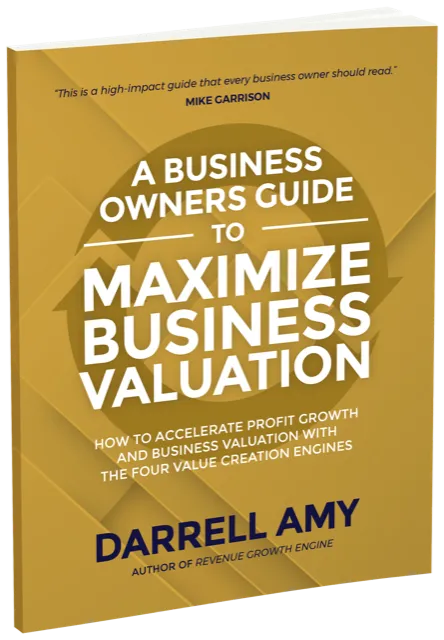
Why Preparing Your Business for Sale Now Is a Smart Move, Especially If You're Not Planning to Sell
In the dynamic world of business, the only constant is change. Whether or not you're contemplating retirement, dealing with unexpected life events, or simply aiming to enhance your company's value, preparing your business for sale is a strategic move that can yield substantial benefits. Even if selling is not on your immediate horizon, adopting a sale-ready mindset can significantly impact your business's resilience, efficiency, and profitability. Here’s why every business owner should start this process now.
It Forces You To Look Objectively At Your Business as an Asset
Many business owners get stuck in the operator box. While you may still have operational responsibilities in your business, it is critical to regularly put on your owner hat. This means you look at your business as an asset:
- Looking for ways to increase your return on invested capital
- Thinking strategically about where the business could go
- Understanding the enterprise valuation
As an operator, it becomes hard to see the big picture through the list of daily demands.
It Ensures You Are Prepared For the Unexpected
According to the Exit Planning Institute, a stunning 50% of business sales were unplanned due to death, divorce, disability, or disagreement. The businesses that are not prepared to sell suffer devastating losses. In the case of the untimely death of a business owner, many never recover.
Most smart businesses have some kind of life insurance plan on the owner. However, the business still needs to be in a position to continue. Otherwise, millions of dollars could be lost. Exit planning is a smart risk-reduction strategy.
It Forces You To Create Processes
In the ecosystem of companies that use EOS, the Entrepreneur’s Operating System, I’ve noticed that one of the last components to get implemented inside a company is the Process component. It’s easy to neglect this. Work that is done on documenting and then continually optimizing processes pays big dividends. Not only does it increase the value of the company it helps the organization run more efficiently and deliver a better customer experience.
It Challenges Your Leadership Team to Focus On Enterprise Value
Leaders at Fortune 1000 companies are all aware of the stock price, encouraging them to take actions that enhance enterprise value. Small and midmarket companies tend to manage to revenue and profit. Sadly, many of these companies don’t get a valuation until it is time to sell. Often the owner is disappointed with the valuation.
Companies that are prepared to sell know their valuation and track it over time. This ensures that if it does become time to sell, there will be fewer surprises as they will have taken the actions to resolve many of the issues that cause buyers to discount their offers. Resolving these issues will result in a better-run company that is more profitable and sustainable. So, even if you never sell, the long-term returns on the company will be better as you manage to enterprise value.
What To Do
Every company should be ready to sell. If you’re thinking, “I’m not planning to sell my company,” you especially need to pay attention to this.
Here are three steps to get started:
1. MEASURE Company Value
It begins with measuring the valuation of your company. Fortunately, this can be done without an expensive and time-consuming engagement with a CPA firm. While formal valuations are important, you can leverage software to get an accurate estimate of the value of your business. The software we use benchmarks a business against the marketplace by accessing a dataset of current industry multiples and over 65,000 recent business sales. Based on this, you get a baseline valuation that can be updated quarterly. (Get started at https://value.valuecreationengines.com).
2. MANAGE To Enterprise Value
Next, you need to get your leadership team managing to enterprise value rather than only managing to revenue and profit goals. Not only is the team tracking valuation as a key scorecard metric, they understand the things that drive value. When we engage with a client, the first thing we do is educate their leadership team on the principles of valuation. We look at the Value Drivers in their business and develop a plan to increase value. (More ideas on this.)
3. MAXIMIZE Enterprise Value
The ultimate goal is to maximize value. Instead of just the owner working on the business, the company creates councils with cross-functional teams working to improve the business.
Getting people from the company engaged in working on the business increases valuation in two ways. First, it helps drive the three levers of valuation: revenue, profit, and the multiple. Second, it reduces founder dependency as multiple people begin to see part of their role as making the company better. As Jim Collins says in Beyond Entrepreneurship 2.0, this is where companies need to make the shift from being a company with an innovative founder to being an innovative company.
Action Items
- Contact us today to measure the valuation of your company.
- Educate and equip your management team to manage to enterprise value.
- Stand up cross-functional councils to work on the business.
Originally published on Darrell Amy's LinkedIn.






